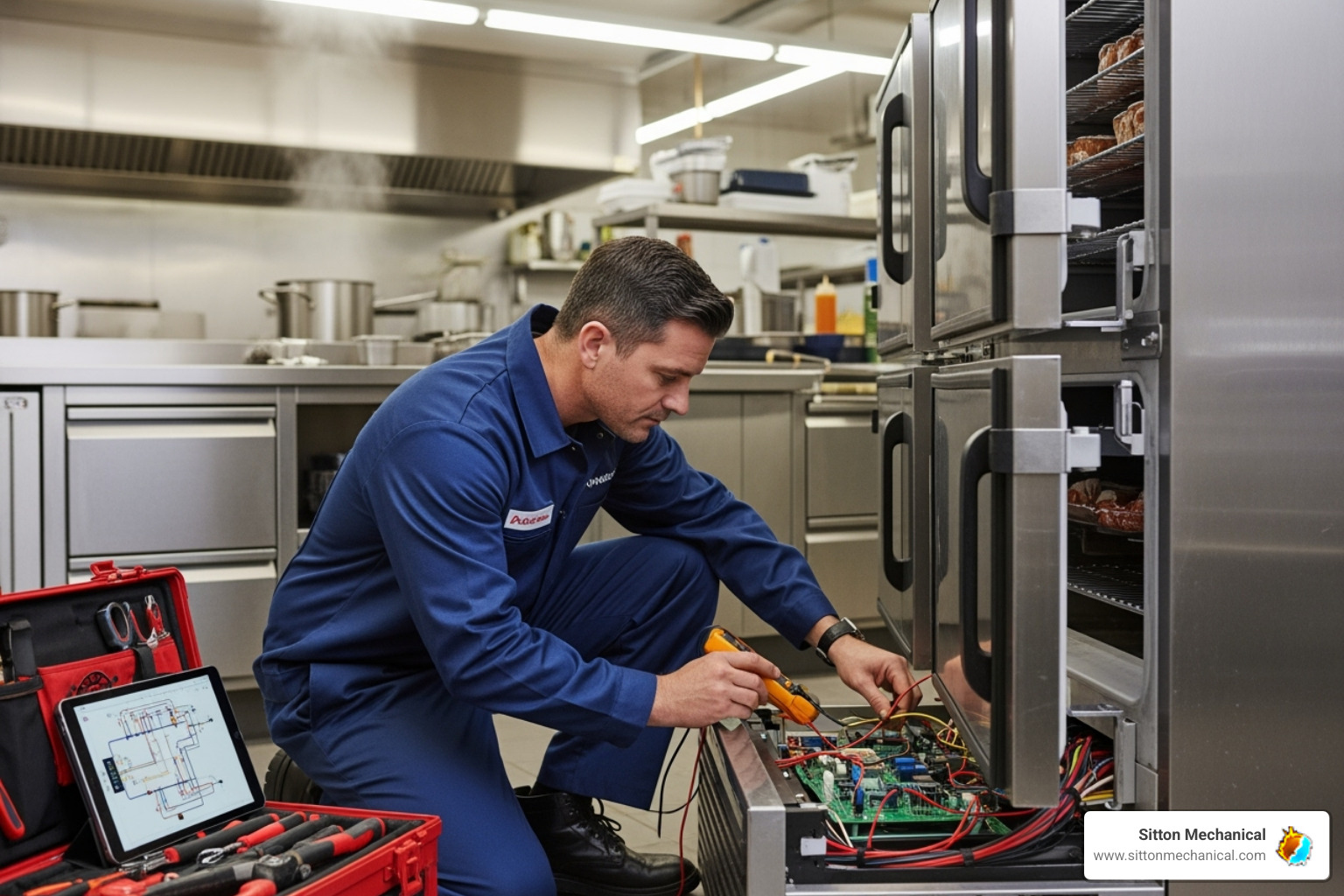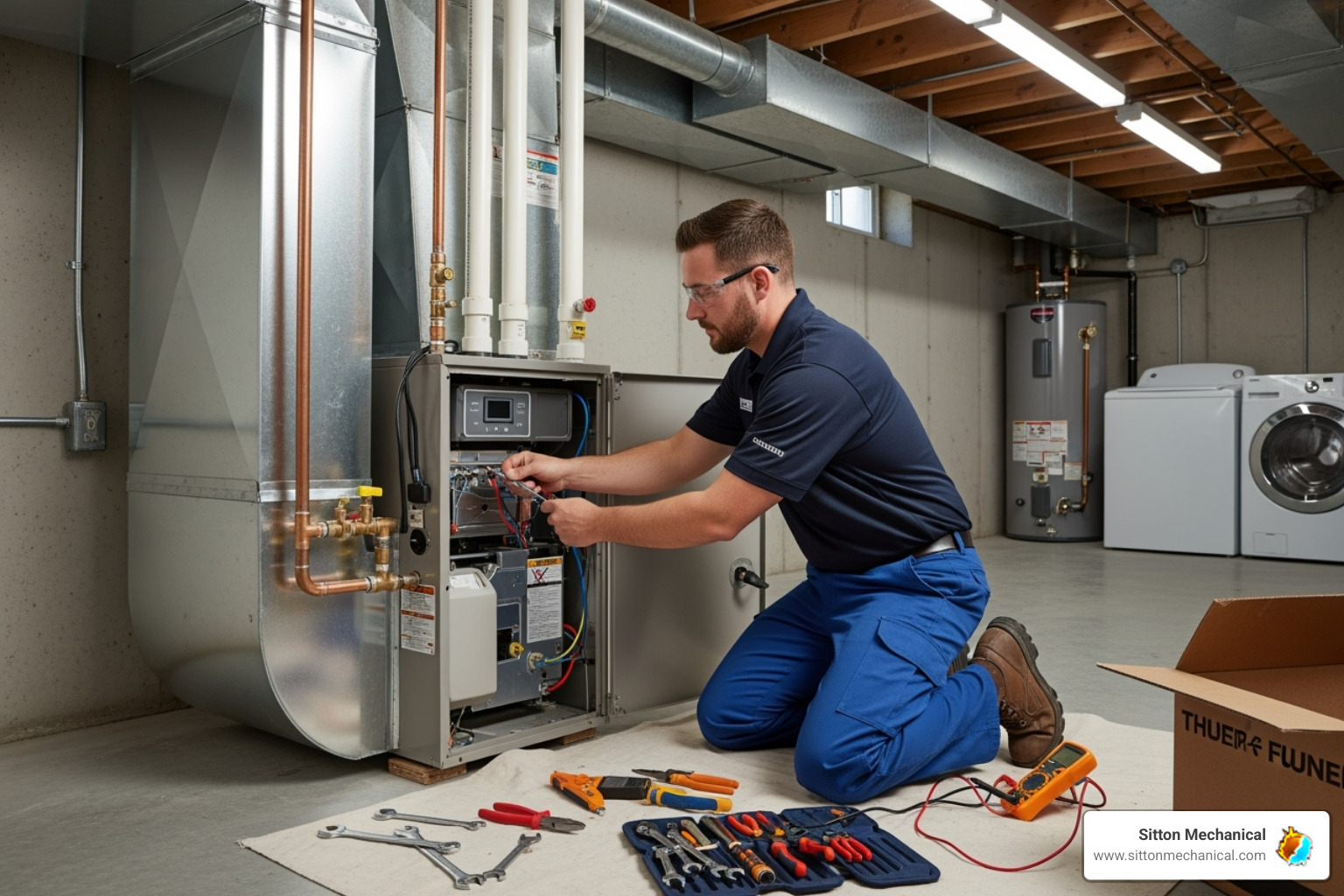When Your Cooler Stops Working in Cushing's Heat
A cooler not working cushing situation can quickly become a major problem, especially when Oklahoma temperatures soar. Whether it's a commercial cooler failing your business or a home AC blowing hot air, the frustration is real.
Quick Solutions for a Non-Working Cooler:
- Check thermostat settings - ensure it's set to "cool" and the right temperature
- Inspect circuit breakers - look for tripped breakers or blown fuses
- Replace air filter - a clogged filter blocks airflow and reduces cooling
- Clear outdoor unit - remove debris, leaves, and vegetation around the condenser
- Verify power supply - make sure the unit is properly plugged in and receiving power
As one local noted, high heat leads to "heightened agitation," which is why getting your cooling system back online quickly matters so much in Cushing.
The good news is many cooler problems have simple DIY solutions. But when those fail, it's time for professional help. This guide will walk you through troubleshooting, identify when to call an expert, and show you how to keep your cooling systems reliable all year.
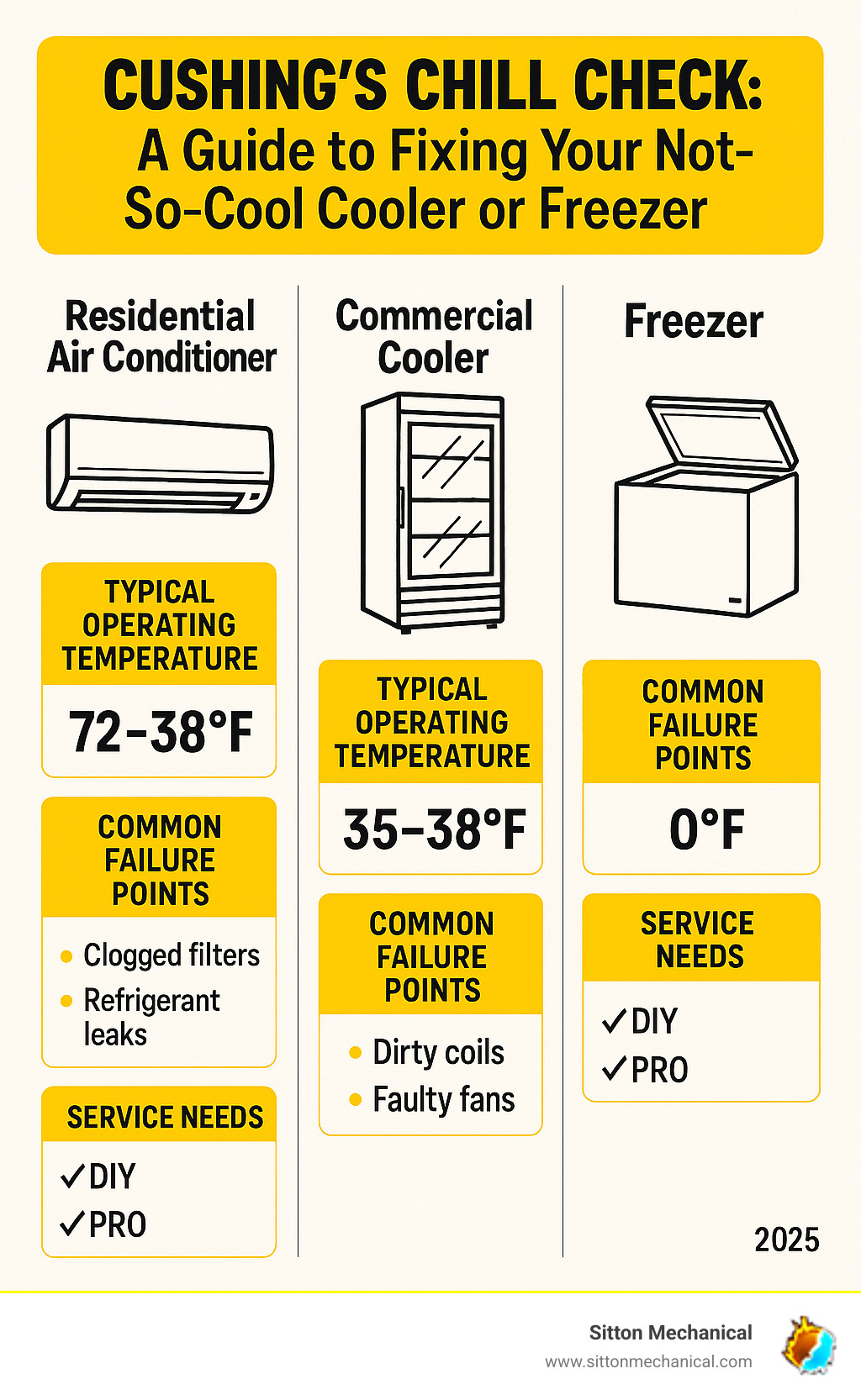
First, Identify the Signs: Is Your Cooler or AC Failing?
Knowing the signs that your cooler or AC is struggling can help you address issues before they become a full-blown breakdown. Ignoring these red flags can leave you sweltering in Cushing's heat.
Here are the common signs that indicate your cooler or AC unit is malfunctioning:
- Weak Airflow: If air from your vents feels weak or some rooms are colder than others, you may have restricted airflow. This is often caused by a clogged filter, blocked vents, or blower fan issues, preventing effective circulation.
- Warm Air: The most obvious sign is warm air blowing from your vents. If the fan is running but the air isn't cold, the system isn't cooling. This could be due to low refrigerant, a dirty evaporator coil, or a compressor issue.
- Strange Noises: Your system should hum consistently. Grinding, squealing, hissing, or bubbling sounds indicate a problem.
- Grinding or Squealing: Often points to motor bearing issues.
- Hissing or Bubbling: Can indicate a refrigerant leak, which is essential for cooling.
- Rattling: Might suggest loose parts or debris.
- Unusual Smells: A musty smell could mean mold or mildew in the ductwork or on the coil. A burning smell is more serious and could indicate an electrical problem.
- Leaking Water: Excessive water pooling around your unit often points to a clogged condensate drain line or a frozen evaporator coil that is now melting.
- Ice Buildup: Ice on your refrigerant lines or evaporator coil is a sure sign of trouble. It's usually caused by poor airflow (from a dirty filter) or low refrigerant levels. A frozen coil cannot absorb heat, so your system will stop cooling.
- Higher Energy Bills: A sudden spike in your utility bills suggests your system is working harder than it should. This inefficiency is a common symptom of underlying issues like dirty coils or low refrigerant.
Recognizing these signs early can save you from more extensive repairs. If you notice any of these indicators, it's time to investigate. For a deeper dive, refer to our guide on Signs You Need HVAC Repair.
Simple DIY Checks Before You Call for Help
When your cooling system fails on a scorching Cushing day, don't panic. Before calling for help, try these simple DIY checks. They can often solve the problem, saving you time and money, and get your cooler not working cushing situation back on track.
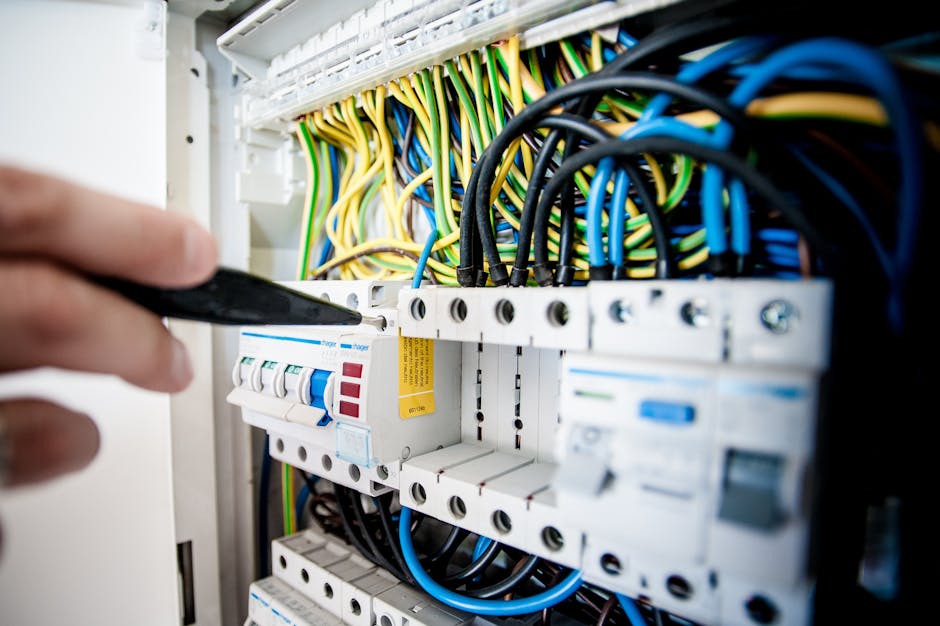
Start with your thermostat settings. It's a simple but common fix. Ensure it's set to "Cool" and the temperature is lower than the room's current temperature. Also, check for low batteries, which can cause issues.
Check your electrical panel. Head to your circuit breaker box and look for any tripped switches. AC units and commercial coolers draw significant power, so a tripped breaker is a common culprit. Flip it firmly off, then back on. For older homes, check for blown fuses.
The air filter check is crucial for residential AC systems. A dirty, clogged filter can restrict airflow and cause your evaporator coil to freeze, shutting the system down. If your filter is packed with dust and debris, replacing it might solve the problem.
Don't forget about your outdoor unit if you have central air. The condenser can't release heat if it's covered in leaves, grass, or dirt. Clear away any debris, leaving at least two feet of space around the unit. A gentle rinse with a garden hose can help clean the coils, but be careful not to bend the fins.
Power supply issues are also common. Make sure the unit is plugged in securely and test the outlet with another device to confirm it's working. A loose connection or a tripped GFCI outlet could be the only issue.
Immediate DIY Steps for a Cooler Not Working in Cushing
When facing a cooler not working cushing emergency, run through this quick checklist:
- Thermostat: Double-check the settings. Ensure it's on "cool" and not "fan only."
- Power Supply: Confirm the unit is plugged in and the outlet is working.
- Air Filter: Inspect the filter immediately, as a clogged one often stops an AC from cooling. For more details, see Why Is My AC Not Blowing Cold Air?.
While troubleshooting, stay cool. Use fans to create airflow, close blinds to block the sun, and stay hydrated. Take cool showers and avoid using heat-generating appliances like ovens. If these steps don't work, it's time to call professionals. Our guide on what to do when your AC Stops Blowing Cold Air: What to Do offers more detailed steps.
Why Your Cooler Not Working in Cushing is a Common Problem
If DIY checks don't work, your cooler not working cushing issue is likely a more complex problem. These deeper issues are common in both residential and commercial systems, especially in Oklahoma's heat, and require professional attention.
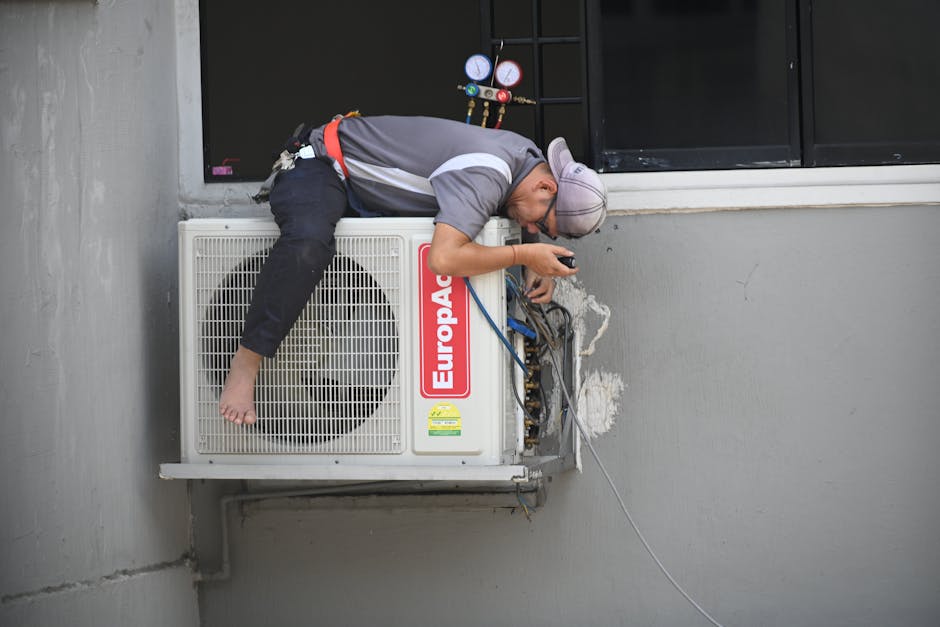
Dirty evaporator coils are a frequent culprit. Located inside your home or cooler, these coils absorb heat. When caked with dirt, they can't absorb heat efficiently, resulting in warm air despite the system running.
Dirty condenser coils on your outdoor unit release absorbed heat. If they are blocked by debris or dirt, the system can't dissipate heat properly, leading to overheating and failure on the hottest days.
Refrigerant leaks are another common challenge. Refrigerant is the lifeblood of your system; it doesn't just "run out." If it's low, there's a leak. You might hear hissing sounds or see ice on the coils. The Energy Department's guide on refrigerant leaks provides more details.
When the compressor fails, it's like the system's heart giving out. This component circulates refrigerant. A failing compressor may make loud grinding noises or simply refuse to turn on.
Electrical faults in wires, capacitors, or control boards can cause a range of problems, from the system not starting to erratic behavior. These issues require professional diagnosis due to safety risks.
Fan motor problems in either the indoor blower or outdoor condenser fan prevent proper air circulation and heat dissipation, rendering the system ineffective.
Oklahoma's climate is tough on cooling systems. When these problems arise, it's time for experts who can provide effective AC Repair solutions. You can learn more in our guide on what to do when your HVAC System Not Cooling.
When to Repair vs. Replace Your Unit
Deciding whether to repair or replace your unit can be tough, especially during a breakdown in Cushing's heat. Understanding these key factors can help you choose confidently.
Age is a key factor. Most cooling systems last 10-15 years. If your unit is in or past this range, replacement is often more practical than major repairs, as older units break down more and parts can be scarce.
Frequent repairs are a warning sign. If you're calling for service every season, the costs can add up. Investing in a new, reliable system may be more cost-effective in the long run.
Energy efficiency is crucial. A new, high-efficiency model could significantly reduce your monthly energy bills, and these savings often justify the initial investment. Look for high SEER or EER ratings.
The R-22 refrigerant phase-out affects many older systems. This refrigerant is now expensive and hard to find. If your R-22 system has a leak, the cost of repair and recharge can be high, often making replacement the better option. Newer systems use the more environmentally friendly R-410A refrigerant.
For deeper insights on this decision, check out our article: You Should Replace Your AC and Furnace.
The Importance of Prevention: Year-Round HVAC Care
Just like a car needs oil changes, your cooling system needs regular maintenance to prevent frustrating cooler not working cushing situations. Preventative care is the key to reliable comfort and avoiding breakdowns during Oklahoma's brutal summer heat.
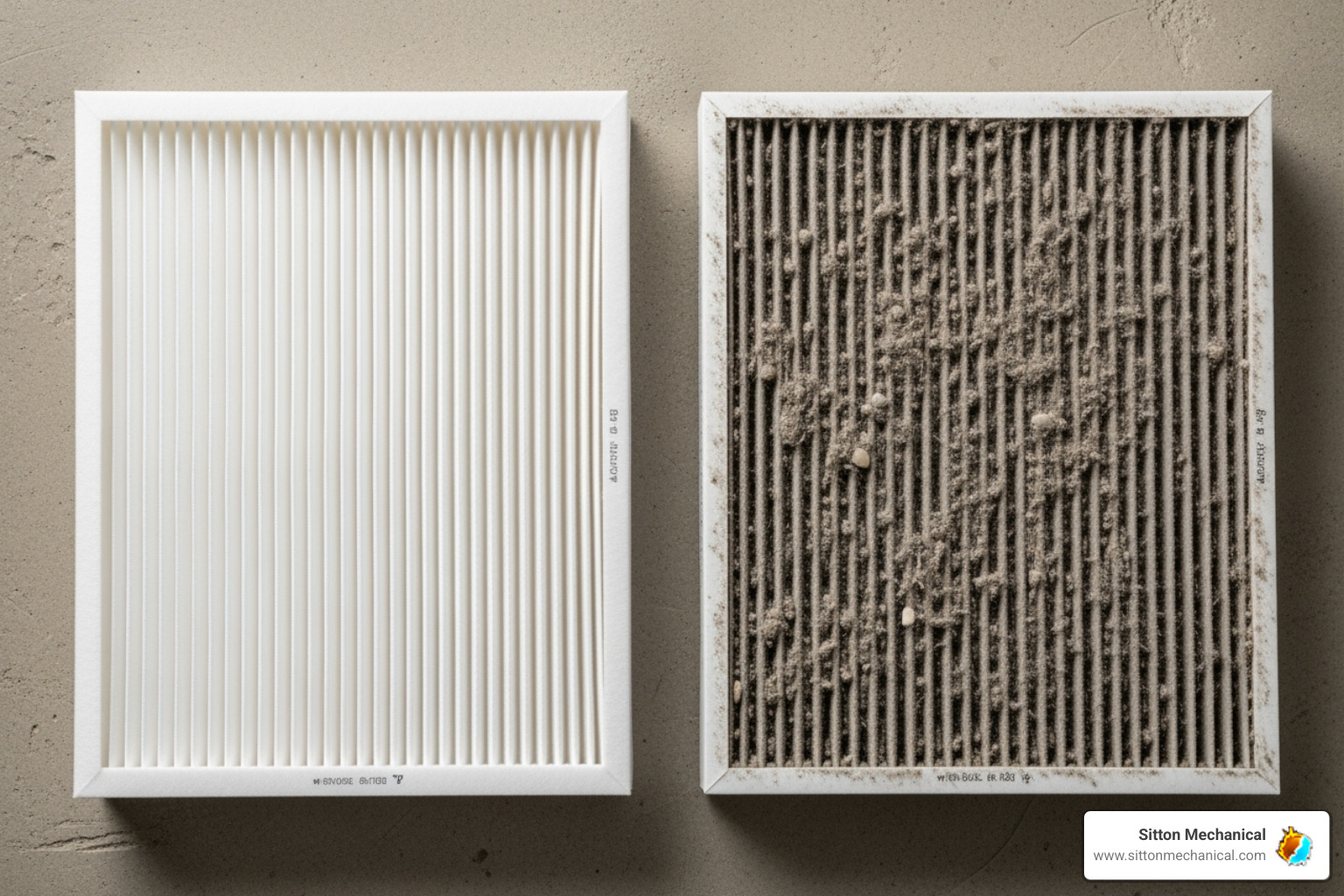
A seasonal tune-up in spring prepares your system for the demanding summer months. It catches small problems before they become big ones, identifying potential issues and fine-tuning your system for peak performance.
One of the most critical tasks is cleaning your coils. Over time, indoor evaporator and outdoor condenser coils collect dirt, which acts like a blanket, preventing proper heat transfer. Clean coils mean efficient cooling and lower energy bills.
Checking refrigerant levels is another crucial step. If refrigerant is low, there's likely a leak. Catching and fixing leaks early prevents costly compressor damage.
Inspecting electrical connections ensures everything is tight and secure, which is important for both efficiency and safety. We also check capacitors, which help start the compressor and fan motors.
Clearing drain lines prevents water backup that can damage your home or shut down your system. It's a small detail that makes a big difference.
A whole-system checkup brings everything together, ensuring all components work in harmony. This comprehensive approach maximizes your system's lifespan and keeps energy bills down.
The payoff is clear: fewer emergencies, better efficiency, longer equipment life, and improved air quality. For more information, see our guide on the Importance of Regular AC Maintenance. You can also explore our comprehensive AC Maintenance services to keep your system running smoothly.
Staying Safe: Health Risks of a Failed AC in Cushing's Heat
When your cooler not working cushing situation persists during Oklahoma's brutal summers, it's more than an inconvenience—it's a health hazard. With temperatures often soaring above 100 degrees, a lack of cooling can be dangerous as extreme heat overwhelms the body's natural defenses.
Heat exhaustion is the first warning sign your body is struggling. Symptoms include heavy sweating, clammy skin, a weak pulse, nausea, and dizziness. It's a serious warning that can escalate quickly without relief.
Heat stroke is a medical emergency. This occurs when your core body temperature rises to 105°F or higher and your cooling system shuts down. Symptoms include a throbbing headache, confusion, hot and red skin (with no sweating), and possible unconsciousness. Call 911 immediately if you suspect heat stroke. Learn more about the symptoms of heat stroke to stay prepared.
Elderly residents, infants, and those with chronic conditions are especially vulnerable to extreme heat. However, even healthy adults can succumb to heat-related illness.
Dehydration worsens all heat-related problems. Drink water regularly, even if you don't feel thirsty. The mental toll is also real, as extreme heat can cause irritability and stress, affecting your mood and decision-making, as noted in research on the psychological toll of extreme heat. A working cooling system in Cushing is essential for health and safety.
Finding Reliable Help for Your Cooler Not Working in Cushing
When DIY fixes fail for your cooler not working cushing problem, it's time to call a professional. Choosing the right HVAC service can feel overwhelming, but here's what to look for.
Certified technicians have the training to diagnose problems accurately. Local reputation is also important in a community like Cushing; check reviews and ask for recommendations.
Look for companies that offer guaranteed work, which shows confidence and gives you peace of mind. Upfront communication is key; a reliable technician will explain the problem and your options clearly.
Emergency availability is crucial during a heat wave. Cooling emergencies don't wait for business hours. At Sitton Mechanical, we combine these qualities to restore your comfort quickly. For comprehensive HVAC Services Cushing, OK, you need partners who understand the urgency of keeping your space cool.
Conclusion: Get Your Chill Back in Cushing
When a cooler not working cushing crisis hits during an Oklahoma summer, it can feel overwhelming. But you have options. Start by identifying warning signs like weak airflow or strange noises, then try simple DIY fixes like checking the thermostat and air filter.
For complex issues like refrigerant leaks or compressor failures, it's time to call in professionals. These problems require the expertise of certified technicians for a safe and effective repair. When deciding between repair and replacement, consider your system's age, repair frequency, and energy efficiency.
Most importantly, prevention is your best defense. Regular maintenance can prevent most emergency breakdowns and addresses serious health risks like heat exhaustion and heat stroke that come with a failed AC in extreme heat.
When you need professional help, look for certified technicians with a strong local reputation and a commitment to guaranteed work. For reliable commercial or residential cooling solutions in the Cushing area, trust Sitton Mechanical's certified experts to get the job done right.
Don't let the heat win. Whether you need commercial refrigeration services or residential HVAC support, we're here to help you get your chill back.
Ready to Transform Your Home?




